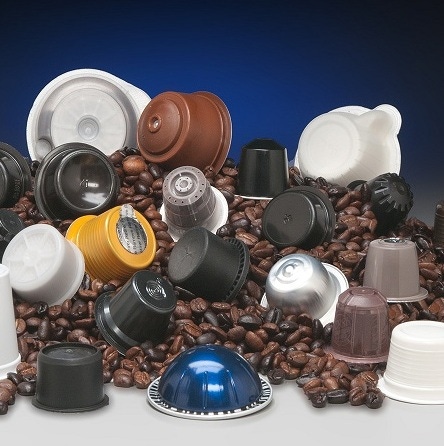More packagers, suppliers and even resin producers need to pitch in to help meet the ‘Davos challenge’ of 100% reusable, recyclable or compostable packaging by 2025.
May 16, 2018


The World Economic Annual Forum, also known as “Davos” because of the location in Switzerland in which it takes place, has challenged leaders from all walks of life to improve the state of the world. One of these areas is the environment where packaging plays a significant role.
At the most recent meeting in January, the Ellen MacArthur Foundation, with the support of Wendy Schmidt, lead philanthropic partner of the foundation’s New Plastics Economy initiative, awarded a total of $1 million to five new recyclable and compostable packaging solutions to stop plastics from becoming waste.
The meeting also noted that the list of leading brands, retailers, and  packaging companies working towards using 100% reusable, recyclable or compostable packaging by 2025 or earlier has grown to 11 – Amcor, Ecover, evian, L’Oréal, Mars, M&S, PepsiCo, The Coca-Cola Company, Unilever, Walmart and Werner & Mertz.
packaging companies working towards using 100% reusable, recyclable or compostable packaging by 2025 or earlier has grown to 11 – Amcor, Ecover, evian, L’Oréal, Mars, M&S, PepsiCo, The Coca-Cola Company, Unilever, Walmart and Werner & Mertz.
But what about the thousands of other brand owners, suppliers, resin producers and others that are part of the plastic processing and package converting chain? Specifically those companies that are responsible for designing packaging made from plastic components?
For example, one of the issues that continues to plague the industry is how to access clean bales of material—such as PET—that can then be reprocessed to create recycled resin for use in next generation bottles. With a current recycling rate of approximately 30 percent in the United States, the availability of recycled content is far below the potential demand.
EastPack 2018 held June 12-14 at the Jacob K. Javits Convention Center in New York City features the latest in manufacturing and automation, a dedicated 3D Printing Zone, hundreds of exhibitors and a jam-packed 3-day packaging conference. For more information, visit the EastPack website. |
However, one of PepsiCo’s innovative new products, Drinkfinity, is has put a process in place that makes it easier for consumers to recycle PET. A special Drinkfinity “vessel” (aka, a custom bottle/closure system) is used in conjunction with flavored pods to create a customized experience. The vessel pierces the loaded pod, releasing its contents into water to create the beverage.
When purchased online, consumers can opt into a pod recycling program. A special postage-paid envelope is sent with the purchased product which can hold up to 30 pods. After it’s filled, the envelope is shipped to a recycler for further processing into rPET and reused in the production of next generation containers.
This is a similar program to the one Nestlé is using for its Nespresso aluminum coffee capsules. Because capsules are typically too small to be source separated at waste management facilities, recycling can be an issue. (Another consideration is that unlike other capsule products whose contents dissolve after use, in Nespresso’s case, the coffee still remains. Therefore, bale weight would also be negatively impacted. Nestlé has gone the extra step of putting a system in place to make sure that the used coffee grounds are separated from the capsule so that it can be sent to composters, enabling the valuable aluminum to be recycled.
While in the long term, recycling programs that require consumers to take extra steps are probably not desirable or sustainable, at least these brands are taking short term steps to reclaim valuable materials and decrease environmental impact.
It’s this type of out of the box thinking that we need from more packagers, suppliers and even resin producers to help meet the “Davos challenge,” of 100% reusable, recyclable or compostable packaging by 2025. So, ask yourself….what role can I play in meeting the goals set forth by the Davos challenge?
Author: Thierry Fabozzi, president of PTI is responsible for the company’s global operations. Fabozzi has a 30-year track record of significant packaging technology and business development achievements. Before joining PTI, he held positions at Nestlé, Milacron and Tetra Pak.
About PTI Global
PTI Global is recognized worldwide as a leading source for preform and package design, package development, rapid prototyping, pre-production prototyping, and material evaluation engineering for the plastic packaging industry. For more information: www.pti-usa.com.
About the Author(s)
You May Also Like


